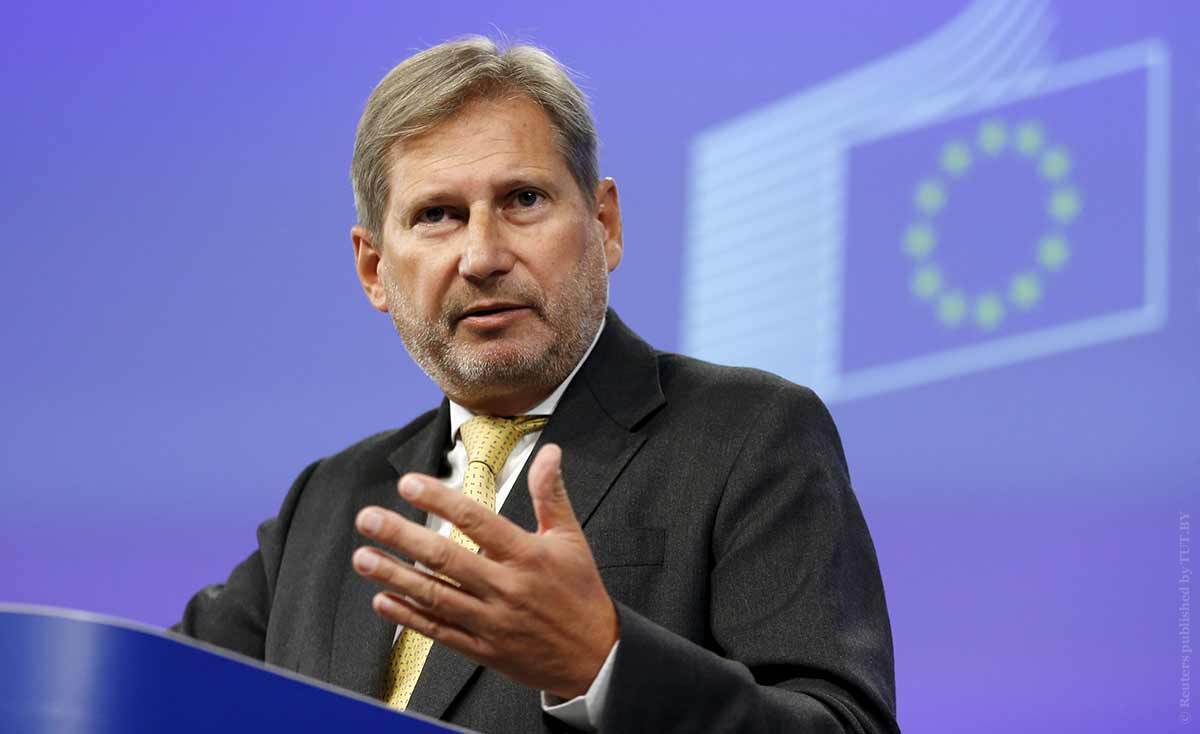European Commissioner discusses EU-Belarus cooperation with human rights defenders
On Wednesday, 31 October, representatives of the Belarusian non-governmental and human rights organizations met with Mr. Johannes Hahn, European Union Commissioner for Enlargement and European Neighborhood Policy. The meeting was also attended by the EU’s official representative in Belarus, Ms. Andrea Wiktorin.
Belarusian NGOs and human rights organizations were represented by a board member of the Human Rights Center "Viasna" Valiantsin Stefanovich, Director of the Legal Transformation Center Volha Smalianka, chairman of the Belarusian Association of Journalists Andrei Bastunets and the head of the independent trade union REP Henadz Fiadynich.
The meeting focused on various aspects of the human rights situation in Belarus in the context of the planned signing of agreements on bilateral cooperation between Belarus and the European Union. Representatives of the country’s civil and human rights community insisted that the Agreement reflected human rights issues, not just economic and other relations.
Valiantsin Stefanovich noted that, as before, the human rights situation is characterized by the absence of any positive systemic change. In Belarus, there are still areas in which, in principle, there has been no progress.
“We see no signals from the government towards the improvement in these areas. First of all, it concerns the changes in the electoral legislation, as well as the implementation of the OSCE recommendations that were made after the latest observation mission in Belarus,” said the human rights activist.
Stefanovich mentioned the work of the interdepartmental group, which was established back in 2016, but its results have not been made public so far. Belarusian human rights community sent their proposals for changes in the electoral legislation. A representative of the campaign "Human Rights Defenders for Free Elections", the chairman of the Belarusian Helsinki Committee Aleh Hulak personally presented them at a meeting of the interdepartmental group. But nothing has been known about its work after the events of the spring of 2017.
Information provided to the Special Representative of the OSCE Parliamentary Assembly Kent Härstedt by the CEC Chairperson and the President of Belarus during a meeting in Minsk suggests that the implementation of the OSCE recommendations and amendments to the electoral legislation is not on the agenda.
“Thus, the presidential and parliamentary elections in 2020 will take place in the legal framework that we have today. They have been criticized many times, by both representatives of the OSCE and human rights activists. Obviously, some election procedures require immediate reformation,” Valiantsin Stefanovich concluded.
Mr. Hahn told the representatives of civil and human rights community that during his meeting with Lidziya Yarmoshyna, head of the Central Election Commission, she once again said that any changes to the law on elections are only possible after amending the Constitution.
“It's quite a strange position, because we do not talk at all about changing the electoral system. And it is not among the list of the ODIHR recommendations. Some of the recommendations deal with specific issues of election procedures, in particular the counting of votes. Of course, no changes in the Constitution are needed in order to implement them,” Stefanovich said commenting on the position of the Belarusian EMBs.
The meeting also touched upon the lack of progress on the abolition or a moratorium on the death penalty. The human rights activists noted that authorities still refer to public opposition, although no work is carried out on this issue in Belarus. In the context of the planned signing of the Agreement, this theme appears particularly acute, because Europe is a death penalty free area. The situation with the death penalty in Belarus is contrary to European values.
Volha Smalianka, director of the Legal Transformation Center, noted shortcomings of legislation regulating the activities of non-governmental organizations in Belarus. She also addressed the problem of changes in the legislation governing peaceful assemblies and the announced decriminalization of activity on behalf of unregistered organizations, which is expected to be replaced with administrative responsibility.
Chairman of the Belarusian Association of Journalists Andrei Bastunets drew attention to the problems of mass media, as well as the systemic persecution of journalists working in Belarus without accreditation. The new changes in the law "On Mass Media" were discussed at the meeting.
The meeting also focused on the subject of criminal proceedings against the leaders of the independent trade union REP. An appeal in the case will be heard by the Minsk City Court on November 9.


















